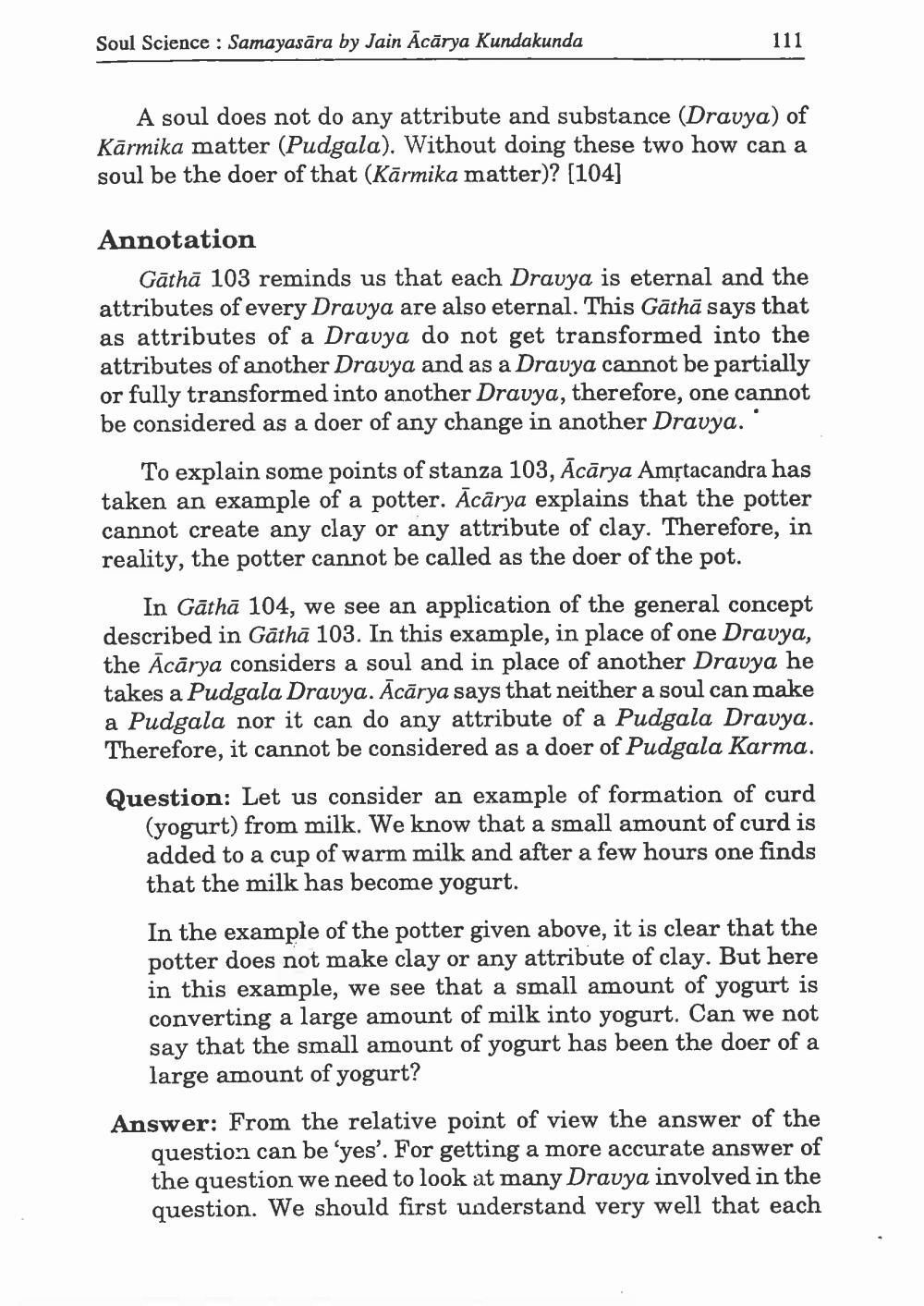________________
Soul Science : Samayasāra by Jain Ācārya Kundakunda
A soul does not do any attribute and substance (Dravya) of Kārmika matter (Pudgala). Without doing these two how can a soul be the doer of that (Kārmika matter)? [104]
Annotation
Gāthā 103 reminds us that each Dravya is eternal and the attributes of every Dravya are also eternal. This Gāthā says that as attributes of a Dravya do not get transformed into the attributes of another Dravya and as a Dravya cannot be partially or fully transformed into another Dravya, therefore, one cannot be considered as a doer of any change in another Dravya.
To explain some points of stanza 103, Ācārya Amstacandra has taken an example of a potter. Ācārya explains that the potter cannot create any clay or any attribute of clay. Therefore, in reality, the potter cannot be called as the doer of the pot.
In Gāthā 104, we see an application of the general concept described in Gathā 103. In this example, in place of one Dravya, the Ācārya considers a soul and in place of another Dravya he takes a Pudgala Dravya. Ācārya says that neither a soul can make a Pudgala nor it can do any attribute of a Pudgala Dravya. Therefore, it cannot be considered as a doer of Pudgala Karma. Question: Let us consider an example of formation of curd
(yogurt) from milk. We know that a small amount of curd is added to a cup of warm milk and after a few hours one finds that the milk has become yogurt.
In the example of the potter given above, it is clear that the potter does not make clay or any attribute of clay. But here in this example, we see that a small amount of yogurt is converting a large amount of milk into yogurt. Can we not say that the small amount of yogurt has been the doer of a
large amount of yogurt? Answer: From the relative point of view the answer of the
question can be 'yes'. For getting a more accurate answer of the question we need to look at many Dravya involved in the question. We should first understand very well that each




